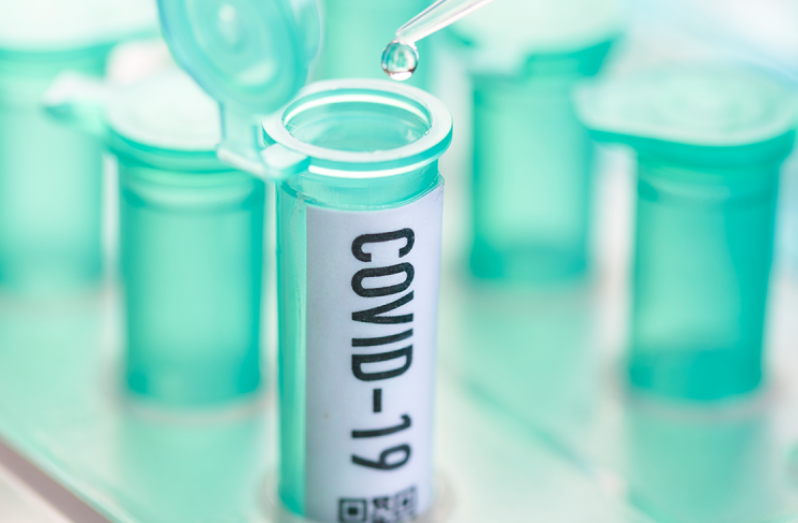ALTHOUGH the early concerns with the COVID-19 infection focused on the effect it has on the respiratory system/lungs, we have been consistently seeing a significant and worrying damage to the human heart as the pandemic continues.
It is recognized that there is increased out-of-hospital cardiac arrests and sudden deaths in many places with high COVID-19 presence. There have been many reports of myocarditis behaving like a heart attack with complaints of chest pains, abnormal electrocardiogram, and increased markers of heart muscle damage. This can occur even in the very young patients. Severe cases can develop heart failure and even shock can occur.
“COVID-19–associated heart dysfunction can also be attributed to other pathways, including Takotsubo syndrome (also called stress cardiomyopathy), ischemia from endothelitis and related atherosclerotic plaque rupture with thrombosis, and the multisystem inflammatory syndrome of children (MIS-C).
“The underlying mechanism of stress cardiomyopathy is poorly understood but has markedly increased during the pandemic. MIS-C is thought to be immune-mediated and manifests with a spectrum of cardiovascular features, including vasculitis, coronary artery aneurysms, and cardiogenic shock.
“This syndrome is not exclusive to children because the same clinical features have been the subject of case reports in adults, such as in a 45-year-old man. There is a diverse spectrum of cardiovascular manifestations, ranging from limited necrosis of heart cells (causing injury), to myocarditis, to cardiogenic shock (an often fatal inability to pump sufficient blood).
“Cardiac injury, as reflected by concentrations of troponin (a cardiac muscle-specific enzyme) in the blood, is common with COVID-19, occurring in at least one in five hospitalized patients and more than half of those with pre-existing heart conditions.
Such myocardial injury is a risk factor for in-hospital mortality and troponin concentration correlates with risk of mortality.
“Furthermore, patients with higher troponin amounts have markers of increased inflammation [including C-reactive protein, interleukin-6 (IL-6), ferritin, lactate dehydrogenase (LDH), and high neutrophil count] and heart dysfunction (amino-terminal pro-B–type natriuretic peptide)” — Dr. Eric Topol.
The more common effects on the heart are:
1. Myocarditis
2. Early and accelerated cell death
3. Heart Attack-like presentations
4. Heart failure
5. Heart rhythm disorders
Myocarditis
This is essentially the inflammation of the heart muscles. In the case of COVID-19, there can be a generalized inflammatory reaction brought on by the Virus, which then spreads to the heart and affects the muscles of the heart.
This can cause chest pain, shortness of breath, fever, fatigue and may sometimes be fatal.
Early and accelerated cell death
The lifespan of the cells is shortened therefore they die earlier. Their place is taken by scar tissue which cannot perform the normal functions of the heart.
As a result of this the contraction and relaxation of the heart can be adversely affected. Additionally, there can be a disturbance in the conduction and electrical system of the heart.
Heart attack-like presentations
Many of these patients with COVID-19 can develop chest pains remarkably similar to a heart attack and come to hospital. Their electrocardiograms (ECG) can be abnormal and blood tests show positive for an enzyme normally seen in a heart attack.
This can cause significant confusion in making decisions how to manage patients.
Heart failure
Heart failure is when the heart cannot pump enough blood to the body to meet the normal demands. The blood takes oxygen to the body and oxygen is used to create energy for work.
Common complaints in heart failure include shortness of breath, tiredness, easy fatigability, inability to lie down flat to sleep, swelling of the legs and sometimes even the abdomen.
Heart rhythm disorders
The COVID-19 patient is at high risk for the development of heart rhythm disorders due to the acute and chronic effects of this disease on the heart muscles, cells and conduction system.
The common types of heart rhythm disorders recognized are:
1. High grade atrio-ventricular block — This is when there is a slowed conduction between the top part of the heart which sets the pace (Pacemaker/Sinus node) and the bottom part of the heart (Ventricle).
This can cause dizziness, falls and loss of consciousness. Treatment may include implanting a pacemaker if this persists.
2. Atrial fibrillation – This is when there are multiple areas in the top part of the heart competing to set the pace of the heart instead of the natural pacemaker (sinus node). The resulting rhythm is irregular, chaotic and often fast.
3. Polymorphic ventricular tachycardia – This is when the bottom part of the heart (Ventricle) starts to beat independently of the top in a rapid, irregular and chaotic way. The result is an inefficient pump function of the heart which can lead to death.
4. Sudden cardiac death and Pulseless electrical activity — This is a very bad development with a high risk of death.
Essentially there is no effective contraction of the heart to produce a pulse or sustain a blood pressure although there is electrical activity seen on the cardiac monitor.
The stay-at-home order is an important part of limiting coronavirus spread, but it does not apply to people experiencing medical emergencies. You should seek medical assistance if you are experiencing symptoms of heart disease.
These would include:
1. Chest pain or discomfort
2. Feeling weak, light-headed or faint
3. Pain or discomfort in the jaw, neck or back
4. Pain or discomfort in one or both arms or shoulders
5. Shortness of breath
Until we find better ways of treating COVID-19 we must take all precautions to minimize exposure and control the effects. We can all do this by continuing to practise social distancing, hand washing and wearing masks when in public.
(This article is part of the Ministry of Health’s COVID-19 public information and education programme)




.png)









